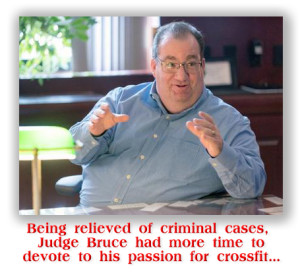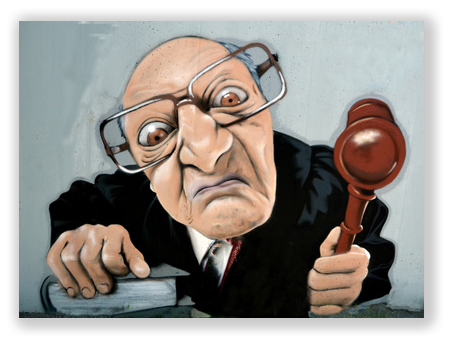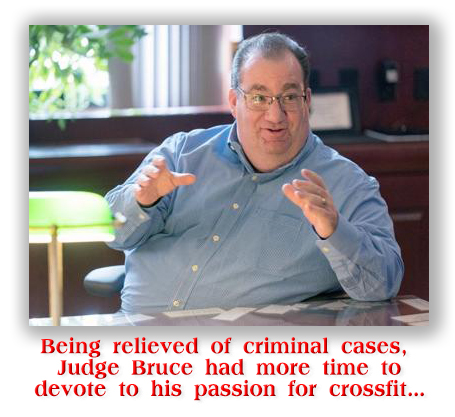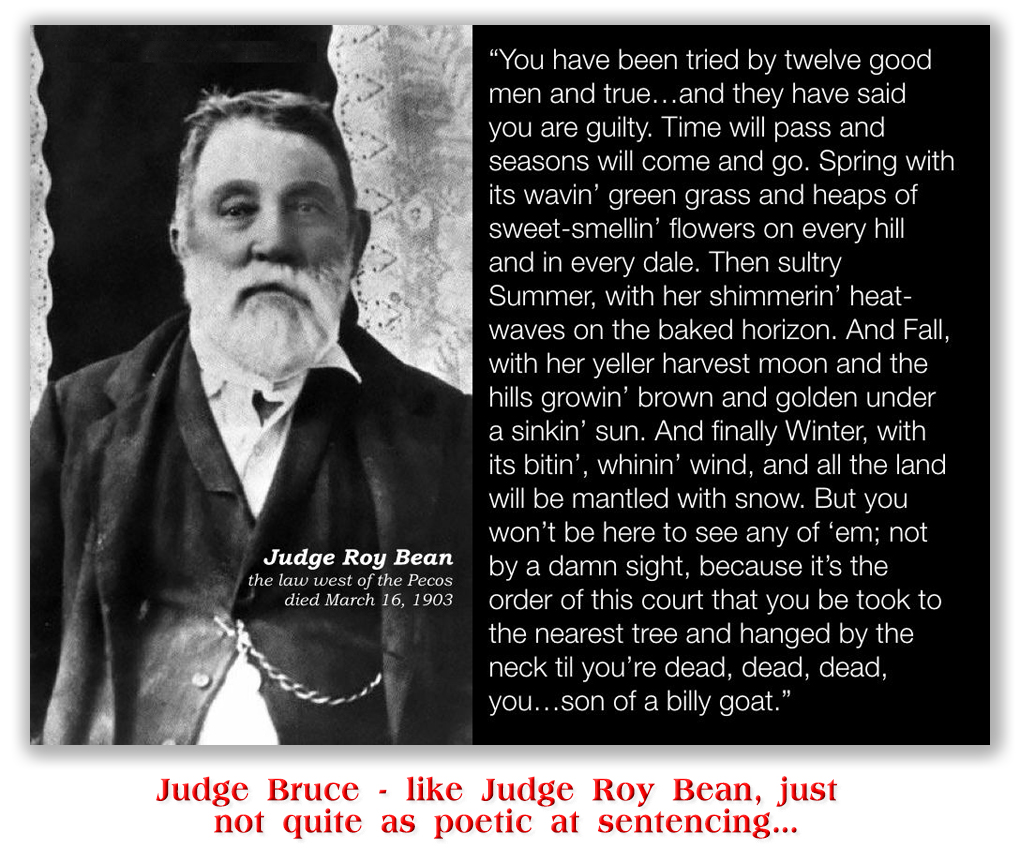We post news and comment on federal criminal justice issues, focused primarily on trial and post-conviction matters, legislative initiatives, and sentencing issues.

‘THE JUDGE’S BIAS DIDN’T HURT YOU’, 7TH CIRCUIT TELLS PETITIONER
You may recall U.S. District Judge Colin S. Bruce of the Central District of Illinois, who was caught by a local newspaper seven years ago holding “extensive” ex parte communications with the US Attorney’s Office about criminal cases over which he was presiding. Ol’ Colin – I don’t call him “Your Honor” for reasons that should be clear – was a former Assistant United States Attorney who couldn’t leave his old pals behind. Ultimately, he was caught talking out of school to prosecutors about cases currently before him, complaining about defense attorneys and blasting assistant U.S. attorneys when he thought they were letting defendants wriggle out their misdeeds and escape the harsh justice they deserved..
 When the story broke, the Chief District Judge removed Bruce from federal criminal cases for a time and the 7th Circuit Judicial Council “found no evidence that Judge Bruce’s improper communications actually affected his decision in any case but admonished Judge Bruce that his actions had breached the Code of Conduct for United States Judges.”
When the story broke, the Chief District Judge removed Bruce from federal criminal cases for a time and the 7th Circuit Judicial Council “found no evidence that Judge Bruce’s improper communications actually affected his decision in any case but admonished Judge Bruce that his actions had breached the Code of Conduct for United States Judges.”
Forty lashes with a wet noodle for a man who should have had the decency to resign. Is this a great country or what?
Kevin Pettis, who had been sentenced in 2018 by Bruce, filed a 28 USC § 2255 motion claiming the right to be resentenced. He argued that Bruce was biased, and “even if there was no showing of actual bias, Judge Bruce had a statutory obligation to recuse under 28 USC § 455(a) because of the appearance of bias.”
Another judge besides Bruce was appointed to hear the motion but found that Kevin failed to present any evidence of actual bias or a risk of bias so high that it rose to the level of a 14th Amendment due process violation.
 Last week, the 7th Circuit affirmed the denial, reminding everyone how hard it is to get a judge removed for bias. The Circuit ruled that Kevin could “only offer[] as evidence of bias Judge Bruce’s publicly disclosed ex parte communications and his preexisting relationship with members of the U.S. Attorney’s Office. Neither the communications nor Judge Bruce’s preexisting relationship with the U.S. Attorney’s Office rises to the level of a due process violation.”
Last week, the 7th Circuit affirmed the denial, reminding everyone how hard it is to get a judge removed for bias. The Circuit ruled that Kevin could “only offer[] as evidence of bias Judge Bruce’s publicly disclosed ex parte communications and his preexisting relationship with members of the U.S. Attorney’s Office. Neither the communications nor Judge Bruce’s preexisting relationship with the U.S. Attorney’s Office rises to the level of a due process violation.”
Pettis v. United States, Case No 23-1889, 2025 U.S. App. LEXIS 4841 (7th Cir., March 3, 2025)
– Thomas L. Root




